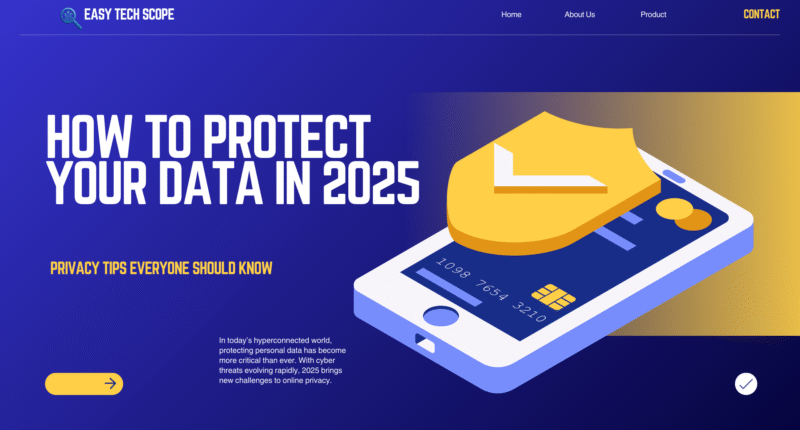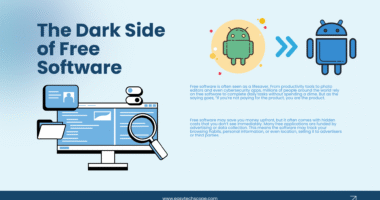In today’s hyperconnected world, protecting personal data has become more critical than ever. With cyber threats evolving rapidly, 2025 brings new challenges to online privacy. From social media leaks to AI-driven phishing scams, your information is constantly at risk. Thankfully, there are practical steps you can take to safeguard your digital life.
Why Data Privacy Matters More in 2025
Every click, search, or online purchase leaves behind a digital footprint. Companies use this data for targeted advertising, while cybercriminals exploit it for fraud. In 2025, new technologies like AI-powered tracking and biometric authentication mean convenience, but also bigger privacy risks. Protecting your data isn’t just about security anymore—it’s about maintaining control over your identity and personal freedom.
Top Privacy Tips Everyone Should Follow
1. Strengthen Your Passwords with Passkeys
Traditional passwords are becoming outdated. In 2025, passkeys—digital keys stored on your device—offer stronger protection. If you still use passwords, make them long, unique, and use a trusted password manager to keep track securely.
2. Use Multi-Factor Authentication Everywhere
Hackers can easily crack a single password, but multi-factor authentication (MFA) adds another layer of security. Whether it’s an SMS code, email verification, or biometric scan, enabling MFA on all accounts is one of the easiest ways to stay safe.
3. Be Careful with Public Wi-Fi
Free Wi-Fi at cafes or airports may be convenient, but it’s also a hacker’s playground. Always use a VPN (Virtual Private Network) to encrypt your connection and prevent cybercriminals from spying on your activities.
4. Limit What You Share on Social Media
Oversharing on social platforms can expose personal details like your location, workplace, or even vacation plans. Cybercriminals use this information for scams and identity theft. Review your privacy settings regularly and think twice before posting.
5. Keep Your Devices and Software Updated
Outdated apps and operating systems are major entry points for hackers. In 2025, automatic updates are a must. Enable auto-updates on your phone, laptop, and smart devices to patch vulnerabilities as soon as they’re discovered.
6. Manage App Permissions
Many apps request access to contacts, cameras, and microphones without a real need. Go through your phone’s settings and restrict unnecessary permissions. The less data apps collect, the safer you are.
7. Protect Your Email and Cloud Storage
Your email is often the gateway to all your accounts. Use strong protection for your email and cloud storage, and consider encrypting sensitive files before uploading them online.
Final Thoughts
Data privacy in 2025 is not something to take lightly. With new threats emerging daily, small steps like enabling multi-factor authentication, using passkeys, and limiting what you share online can make a big difference. Protecting your data isn’t just about avoiding hackers—it’s about securing your digital identity and keeping control over your personal life.
By staying informed and applying these privacy tips, you’ll be well-prepared to navigate the digital world more safely this year and beyond.








